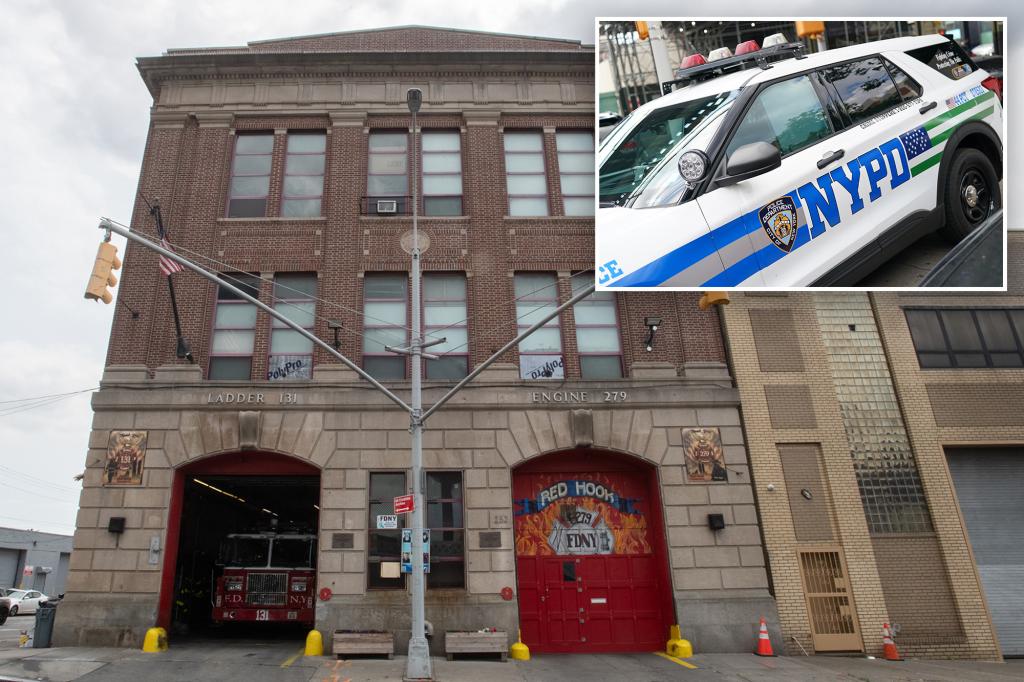Jean Negron-Davila, a 36-year-old off-duty firefighter assigned to Engine 279 in Brooklyn, found himself in trouble with the law once again on Sunday morning. Arrested on Staten Island around 4:18 a.m., Negron-Davila was charged with driving while intoxicated (DWI), driving while ability impaired, and refusing to take a Breathalyzer test. This incident marks another chapter in Negron-Davila’s history of confrontations with law enforcement, recalling a previous arrest in 2011 for assaulting a police officer during a street party. The current charges, if proven, could lead to serious consequences for Negron-Davila, including suspension or termination from his position with the fire department, in addition to legal penalties.
The details surrounding Negron-Davila’s Sunday arrest remain limited, with authorities only confirming the charges and his refusal to submit to a breath test. The lack of a Breathalyzer result complicates the prosecution’s ability to establish the level of Negron-Davila’s intoxication, though his alleged impaired driving provides a separate avenue for legal action. The specific circumstances leading to his arrest, such as the reason for the initial police stop and any observable signs of impairment, are yet to be fully disclosed. The refusal to take a Breathalyzer test, while within Negron-Davila’s rights, can be used against him in court as an indication of potential guilt.
Negron-Davila’s 2011 arrest paints a picture of an individual prone to volatile behavior when confronted by authority. During a raucous street party in Staten Island’s Graniteville neighborhood, police attempted to disperse the crowd, leading to a confrontation with Negron-Davila. According to police reports and court documents, he became verbally abusive, shouting expletives at the officers. The situation escalated when Negron-Davila physically assaulted a police lieutenant, punching him in the face. The altercation required the efforts of multiple officers to subdue and arrest him.
Following his arrest in 2011, Negron-Davila allegedly boasted about the number of officers it took to restrain him, reportedly saying, “You guys fight like b—–s. It took seven of you to take me down.” This statement, if accurate, underscores a perceived disregard for law enforcement and a potential inclination towards aggressive behavior. The 2011 incident resulted in charges against Negron-Davila, though the exact outcome of that case, including any penalties imposed, is not currently available. However, the incident serves as a significant backdrop to his current arrest, raising questions about a potential pattern of misconduct.
The current charges against Negron-Davila bring into focus the intersection of his professional role as a firefighter and his personal conduct. As a firefighter, he is entrusted with the safety and well-being of the public, a responsibility that demands a high degree of integrity and adherence to the law. His alleged actions, particularly the DWI charge, contradict the image of responsibility and trustworthiness associated with his profession. The Fire Department of New York (FDNY) holds its members to a strict code of conduct, and Negron-Davila’s arrest will likely trigger an internal investigation, potentially leading to disciplinary action, including suspension or dismissal, depending on the outcome of the legal proceedings.
The legal process for Negron-Davila’s current charges will involve navigating the complexities of DWI laws and presenting evidence related to his alleged impairment. The prosecution will likely rely on police observations and any witness testimony to establish his inability to operate a vehicle safely. The defense may challenge the basis for the initial stop and the officers’ assessment of impairment. The refusal to take a breath test, while not conclusive proof of intoxication, can be used by the prosecution to argue consciousness of guilt. Ultimately, the court will determine the validity of the charges and impose appropriate penalties if Negron-Davila is found guilty. His prior arrest and alleged behavior during that incident could also be considered a factor in any sentencing decision. The consequences of a conviction could extend beyond legal penalties to impact his professional life, potentially jeopardizing his future as a firefighter.

